Why Aren’t Youth Climate Leaders Addressing Meat Consumption?
The News
On September 21, youth climate leaders from around the world converged at the United Nations in New York to participate in the Youth Climate Summit. During the summit, TheirTurn asked them why the youth climate movement isn’t using its platform to encourage grass roots climate activists and the mainstream public to make lifestyle changes to reduce their own carbon emissions.
One day earlier, tens of thousands of New Yorkers, most of whom were students, took to the streets of downtown Manhattan to participate in a youth climate strike with Swedish climate activist Greta Thunberg. Neither their posters nor the information they distributed focused on what individuals can do to reduce their own carbon footprint. Frustrated by the fact that youth climate leaders are not proactively encouraging the public to take steps to reduce their own emissions, a contingent of several dozen adult activists joined the climate strike to promote plant-based diets.
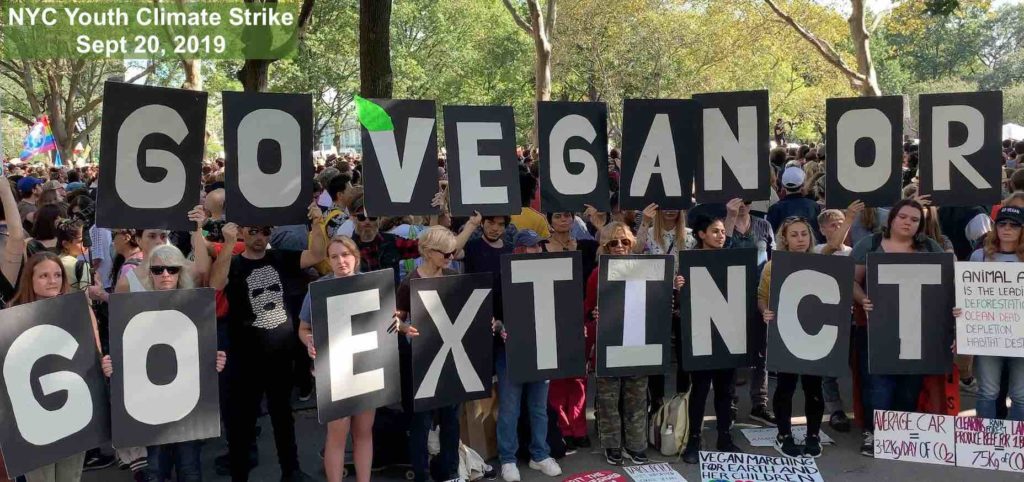
Adult climate strikers promote plant-based diets as a strategy to reduce carbon and methane emissions
“Eating animals is the elephant in the room of the climate change movement,” said Nathan Semmel, an attorney and activist who participated in the climate strike. “How can youth climate leaders expect world leaders to take action on the climate crisis if they aren’t encouraging their own constituents to stop engaging in environmentally destructive activity that can be easily avoided?
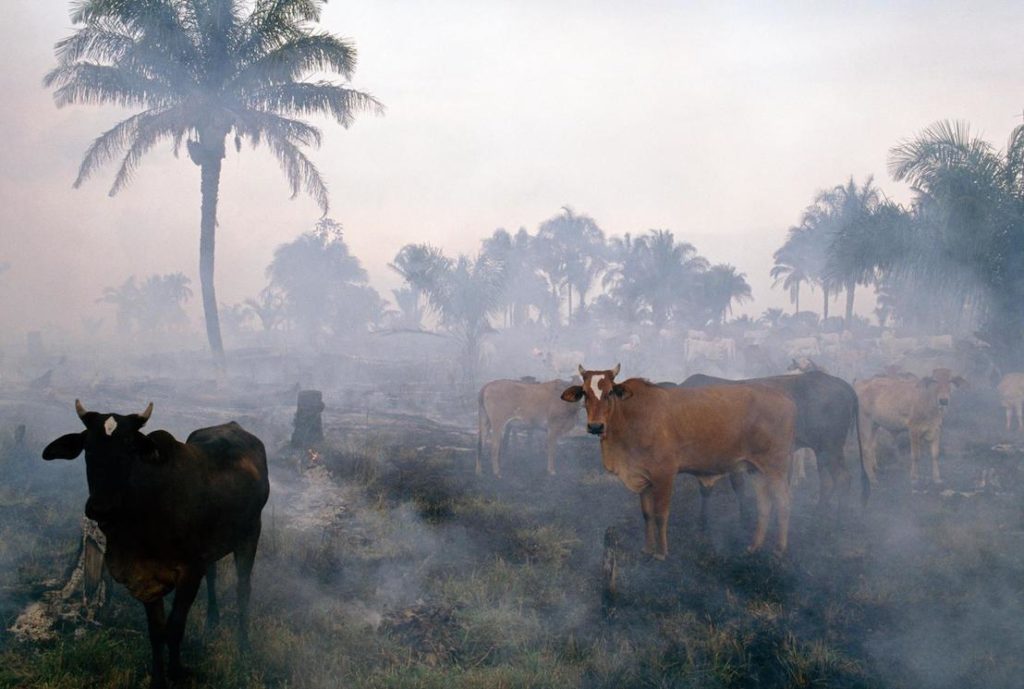
Ranchers are deforesting the Amazon in order to graze their cattle and grow cattle feed (photo: National Geographic)
During the interviews with TheirTurn, every youth climate leader mentioned meat reduction or elimination when asked what steps individuals can take. None of them, however, indicated that they are proactively conveying this message to their constituents. They are instead pressuring global leaders to make systemic change.
“It’s not an either/or,” said journalist and climate advocate Jane Velez-Mitchell of JaneUnChained. “Youth climate leaders can demand accountability from our leaders and ask their constituents to reduce their own carbon footprint by making the switch to a plant-based diet.”
Unlike youth climate leaders, who understand the impact of animal agriculture on the climate and are reducing or eliminating their own consumption of animal products, grass roots participants in the youth climate strike were largely unaware. When asked what steps they can take to reduce their own carbon emissions, most recommended reducing single-use plastic and recycling.
Filed under: Food
Tagged with: animal agriculture, climate change, factory farming



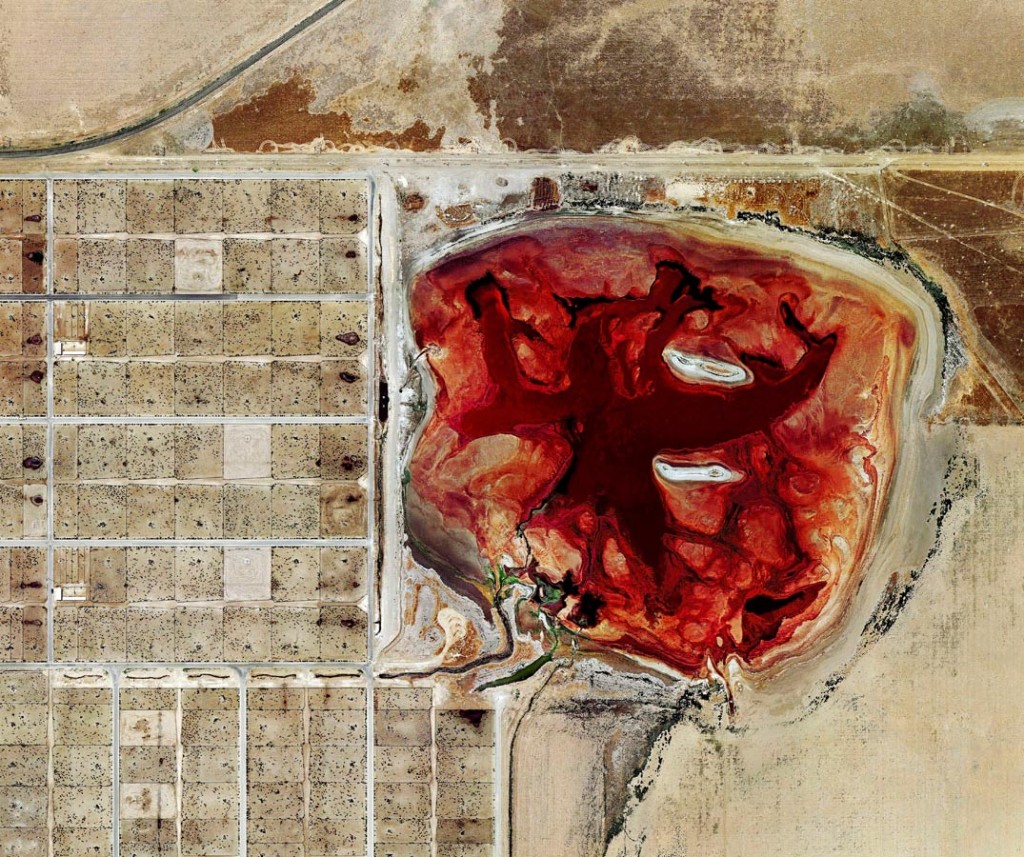
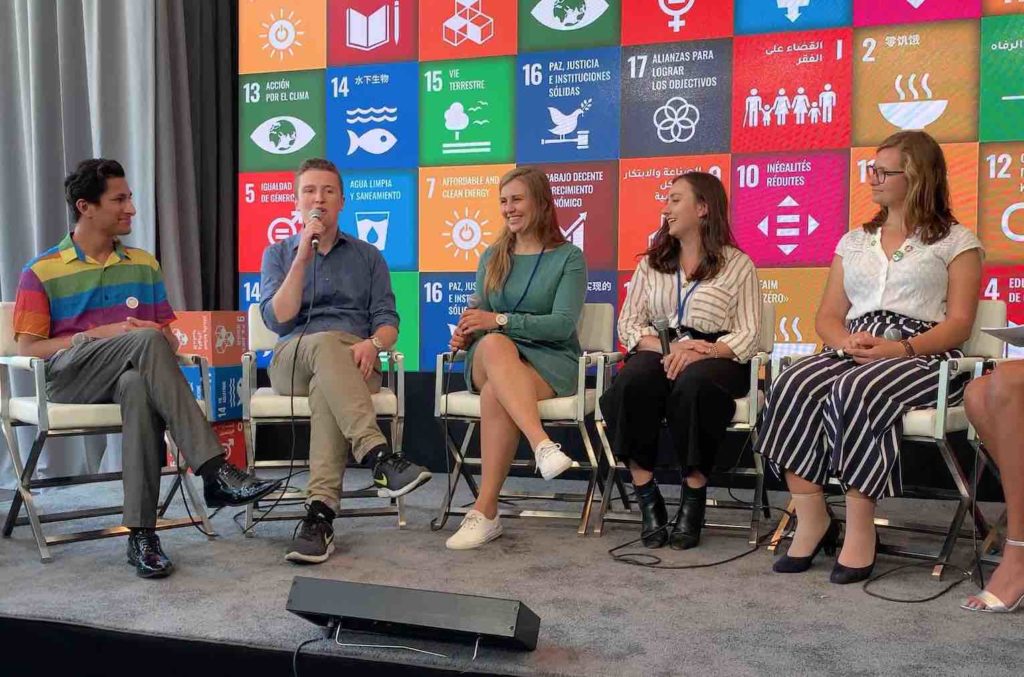
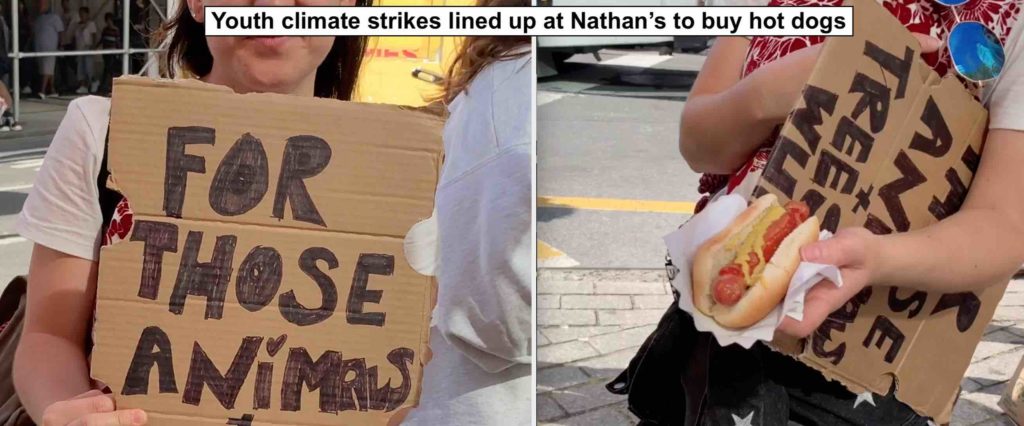
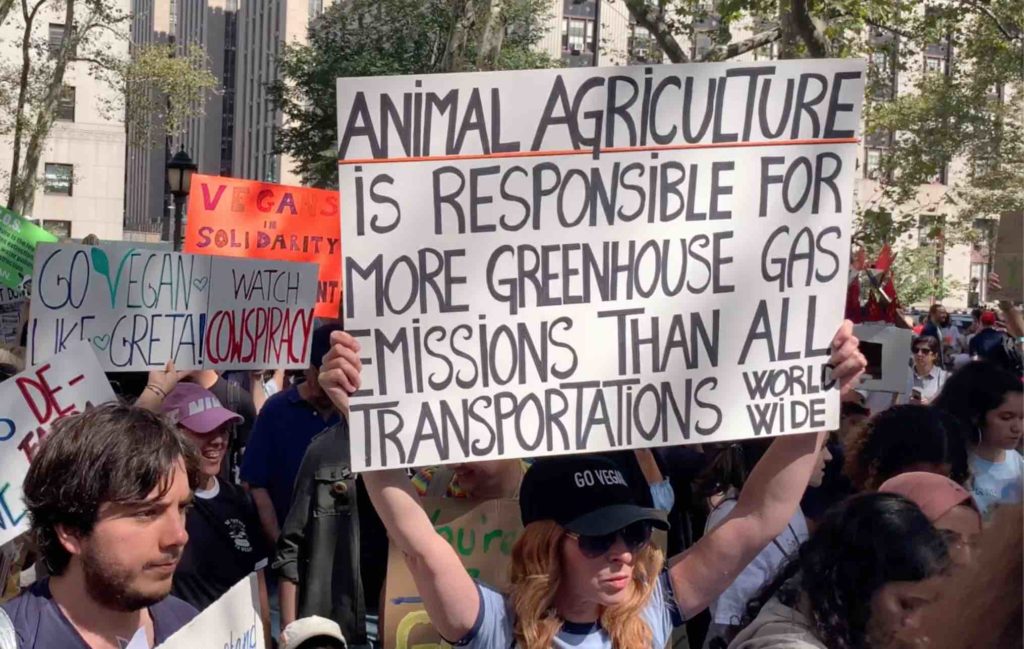
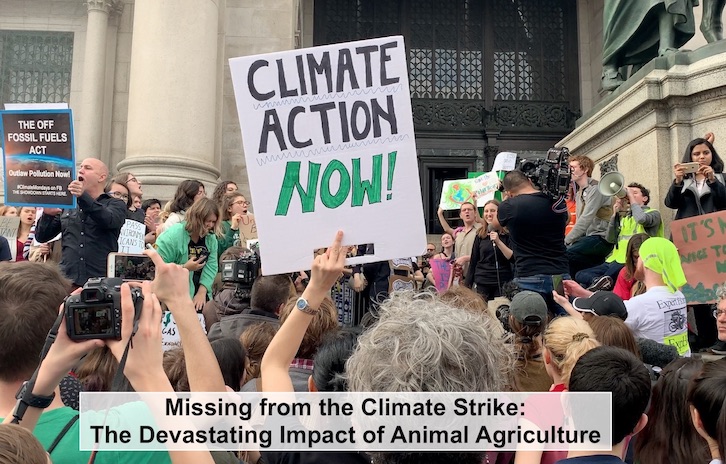
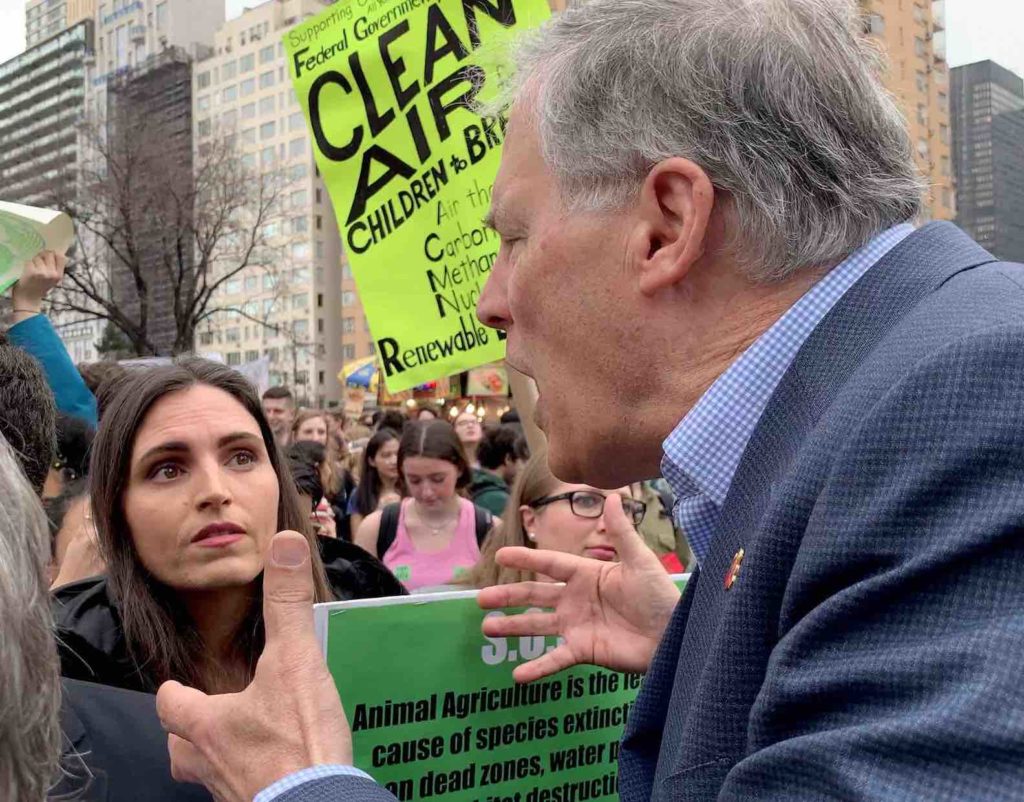
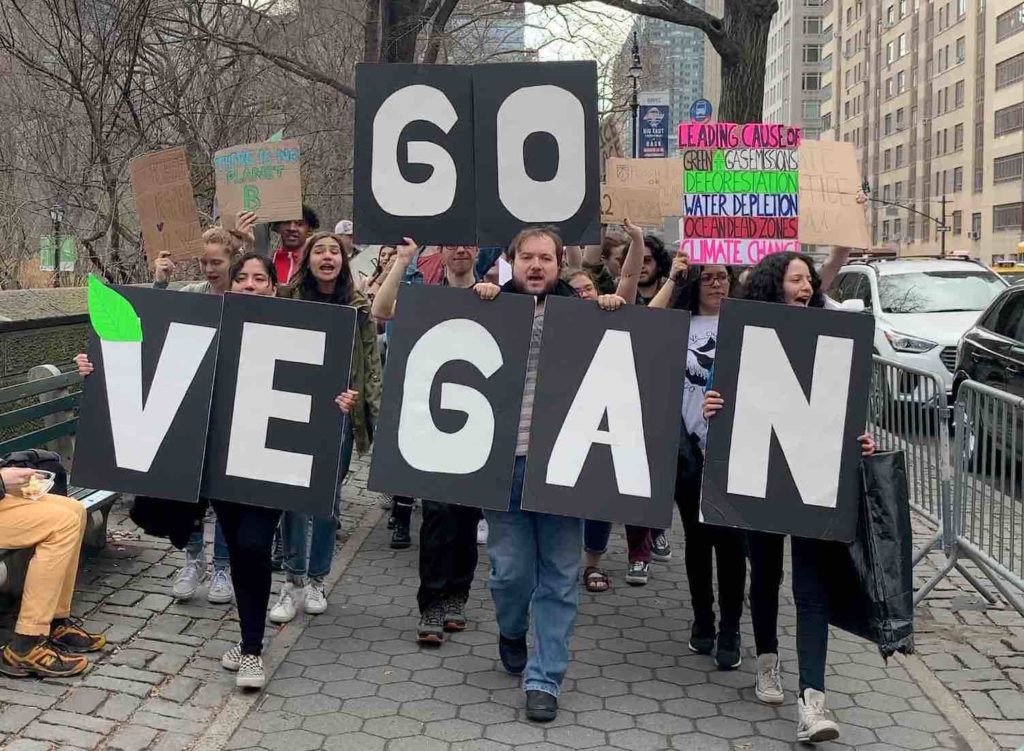

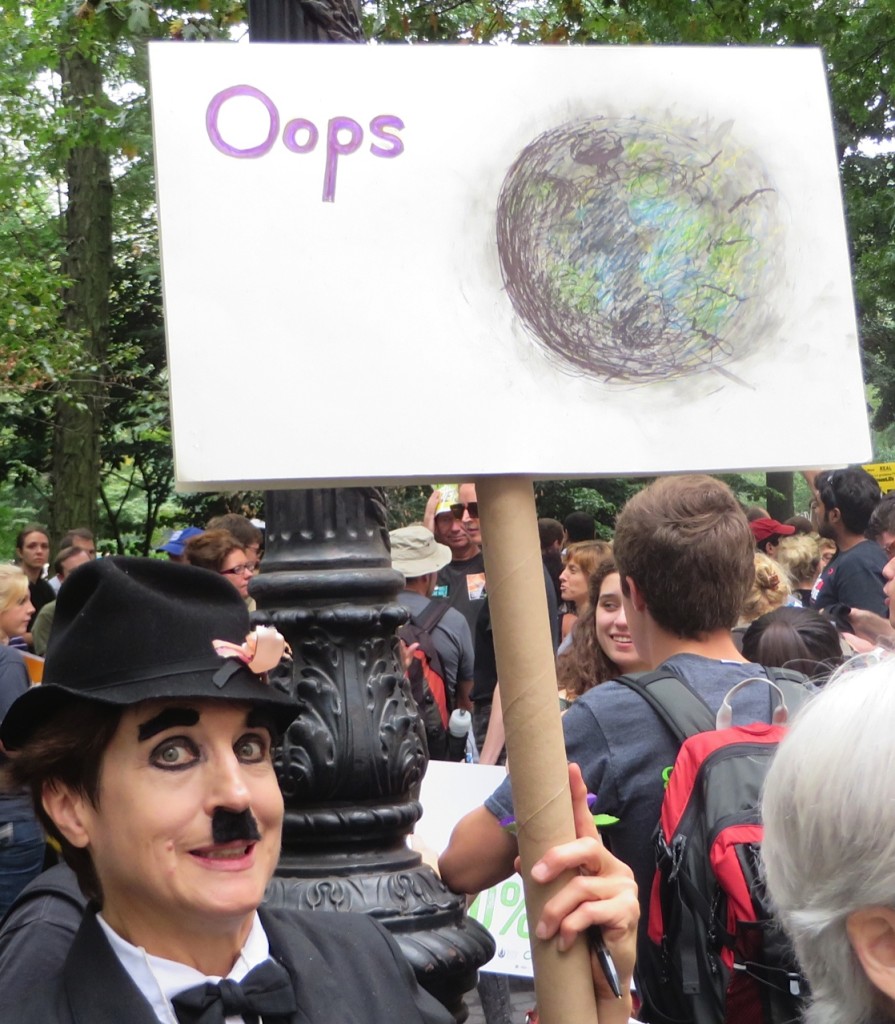
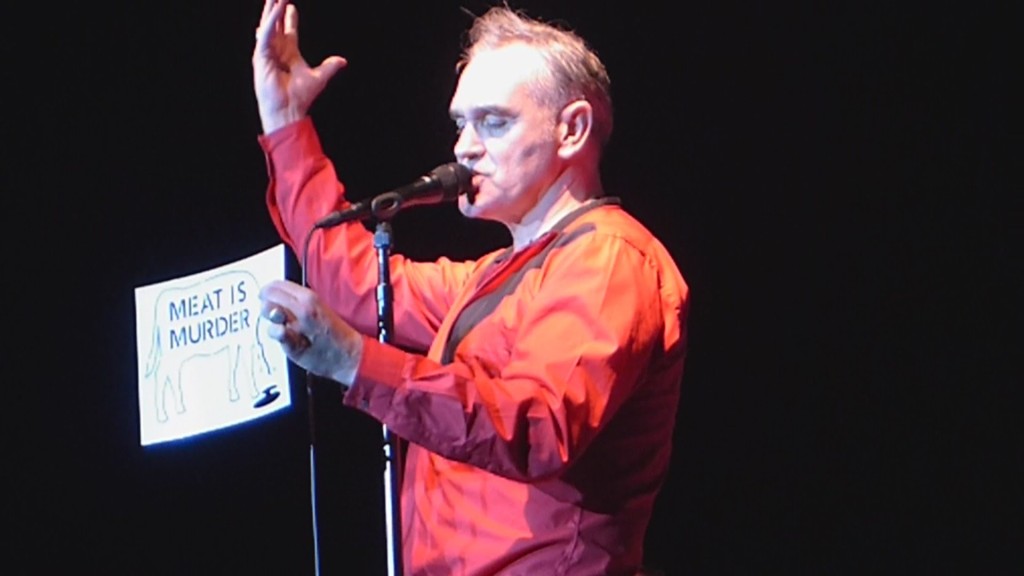
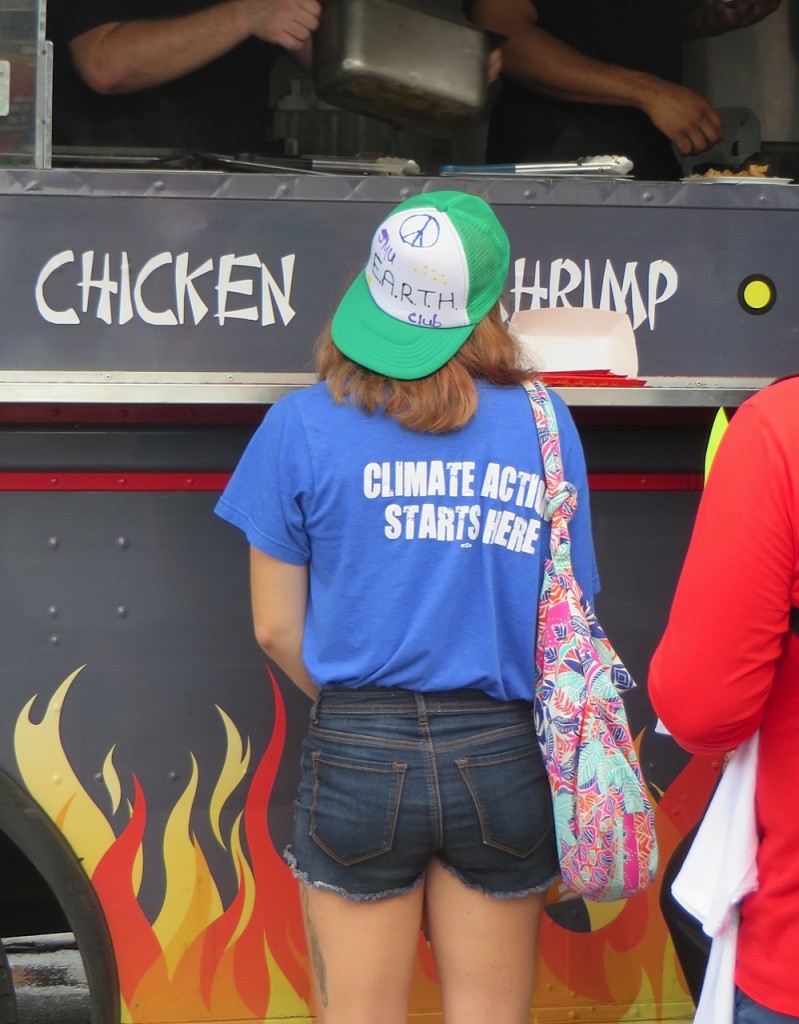
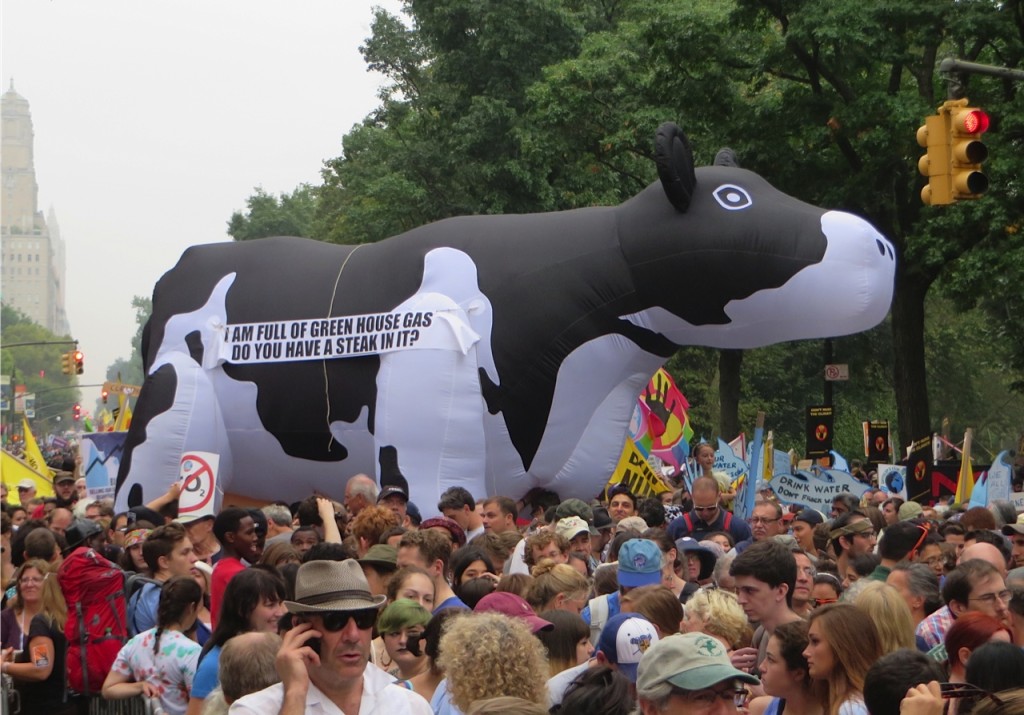
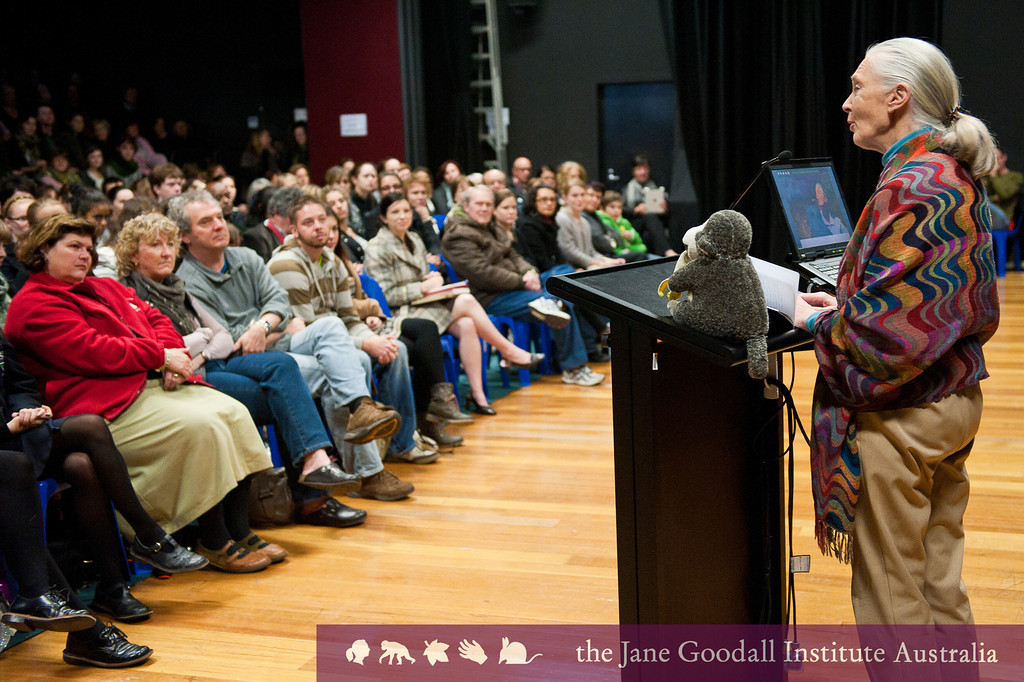

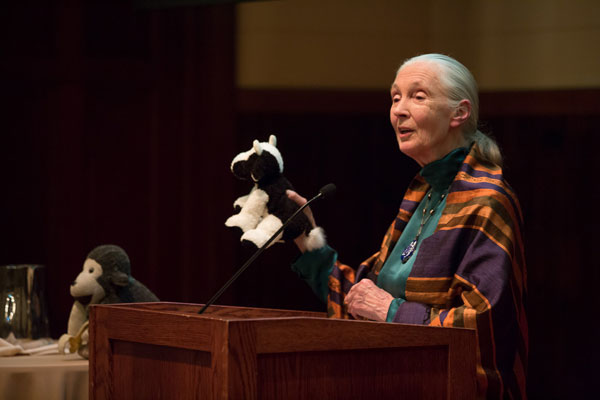

Follow Their Turn